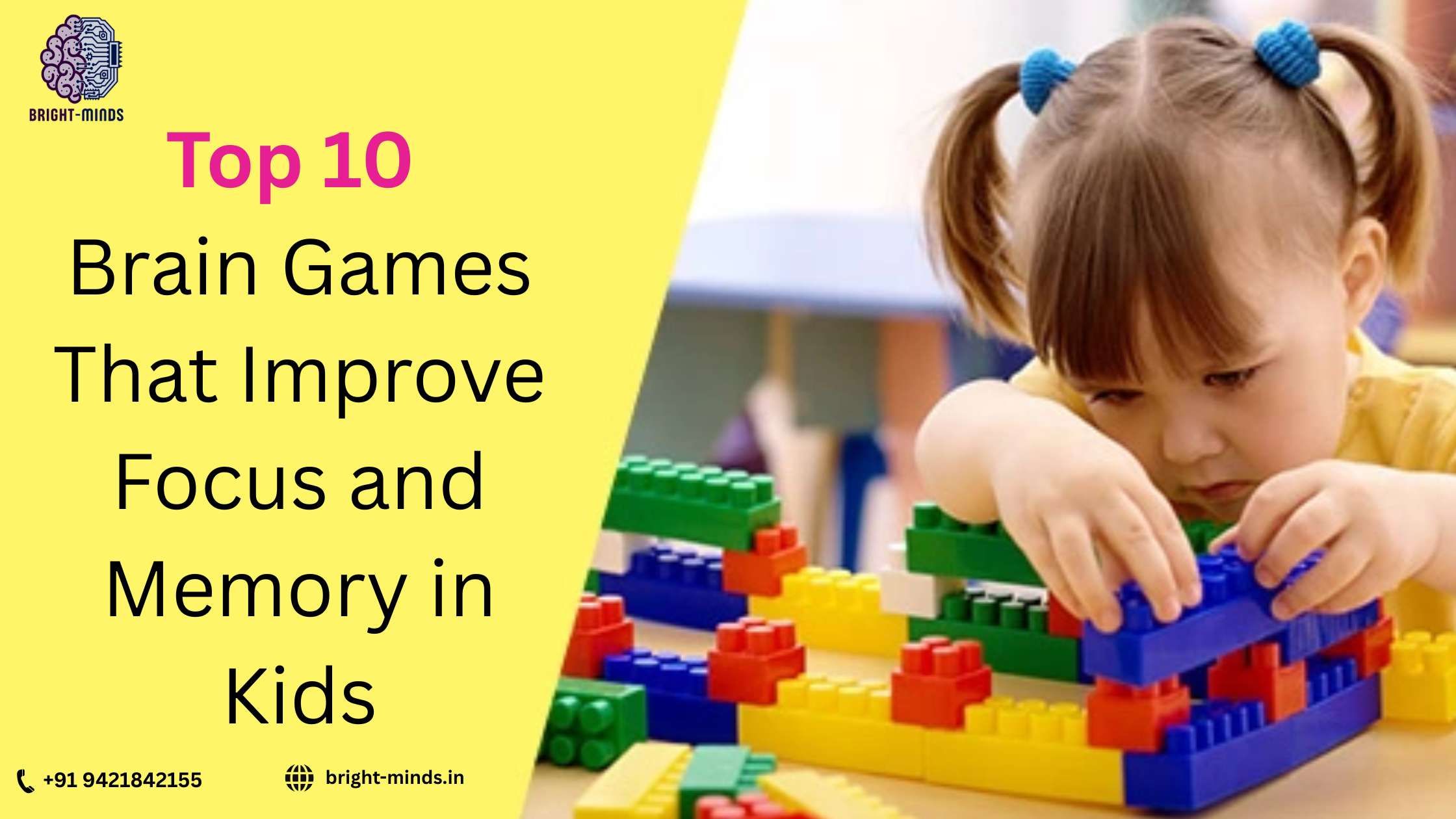Children’s attention spans are getting shorter in today’s digital world. However, what if you could improve your child’s memory and focus while still making it enjoyable? The clever, entertaining method of promoting cognitive development is through brain games.
Your child’s cognitive abilities, memory recall, and focus will all be strengthened by these engaging educational exercises. These games are ideal for kids ages 4 to 12, whether you’re a parent trying to cut down on screen time or a teacher incorporating enrichment into your lectures.
1. Jigsaw Puzzles
As they work on the minutiae, jigsaw puzzles assist kids in seeing the wider picture. Solving puzzles improves hand-eye coordination, memory, and attention span.
Advice: Start with puzzles that have a lot of pieces and work your way up to more intricate ones.
2. Memory Matching Cards
A basic deck of picture cards can be quite effective! As children attempt to remember the locations of each card, this timeless game enhances short-term memory and focus.
Bonus: You can use letters, numbers, or animals to make your own do-it-yourself memory cards.
3. Simon Says (Digital & Physical)
Whether played offline or through apps, “Simon Says” trains children to listen and respond in sequence. This strengthens both memory and reflexes.
4. Sudoku for Kids
Sudoku boosts reasoning and pattern recognition. There are kid-friendly versions with pictures or smaller grids to ease them into it.
🔹 Use printable 4×4 grids to start.
5. Story Building Games
Give your child a few words or pictures and ask them to build a story. This improves sequencing, focus, and imagination — crucial for memory and communication.
🔹 Try digital story apps like “Toontastic” or “Imagistory.”
6. Educational Apps (e.g., Lumosity Kids, BrainPOP)
There are several child-safe apps offering mini-games and exercises that cover logic, memory, and speed. Make screen time smarter!
🔹 Tip: Limit app time to 20–30 minutes per session for best results.
7. Math Bingo
Math Bingo turns arithmetic into a fun challenge. Kids must quickly calculate to match numbers — enhancing both memory and mental math skills.
8. Monkey Ladder (Cognitive Memory Game)
Available on many educational websites, Monkey Ladder presents numbers briefly before hiding them. Kids must recall and reorder them correctly — training memory and sequencing.
9. Spot the Difference
A great game for building focus and visual scanning skills, this classic requires kids to find differences between two seemingly identical images.
🔹 Also helps with attention to detail and patience.
10. Maze Tracing and Logic Paths
Tracing a maze builds spatial reasoning and problem-solving abilities. Add logic games that require step-by-step planning for an even stronger mental workout.
🔹 Use printable mazes or apps like “Flow Free” and “Maze King.”
Why Brain Games Work
- Enhance cognitive flexibility
- improve short- and long-term memory
- increase focus and concentration
- foster problem-solving abilities
- and support patience and emotional control.
Tips for Parents: Make It a Habit
- Include brain games in your child’s daily routine.
- Play together to make learning feel like bonding.
- Rotate games weekly to avoid boredom and maximize skill growth.
- Track progress and celebrate improvements — build their confidence!
Final Thoughts
Brain games are useful tools that help kids think more clearly, focus better, and become more confident learners. They are not simply for fun. By implementing these easy yet powerful activities, parents and educators can establish the groundwork for talents that last a lifetime.
You may also like this:-

